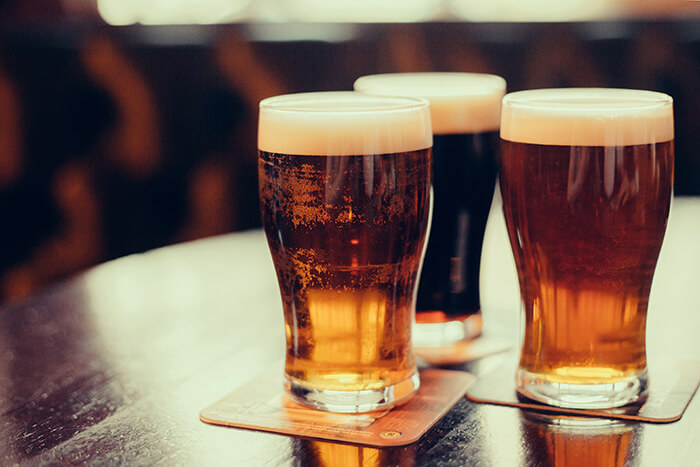The History of Beer
From Egyptian Pharaohs to Homer Simpson, humans have enjoyed beer for over five thousand years. Some historians argue that the rise of Civilization as we know it today is all because of this frothy fermented beverage. So, raise your glass and let’s pay homage to humanity’s favorite refreshment. Here’s more about the history of beer.
Records show that the Chinese concocted the earliest known alcoholic libation about 9,000 years ago. They made the special treat from honey, rice and fruit. The first grain-based barley beer was most likely produced in the Middle East.
An Ancient Recipe
Although humanity was probably imbibing much earlier, archeologists unearthed hard evidence of beer production dating back 5,000 years. They discovered ancient Mesopotamian ceramic vessels still sticky with beer residue. Other evidence found include the “Hymn to Ninkasi,” an ode to a Sumerian goddess of beer. The hymn contains a recipe for a brew made by female priestesses. This ancient beverage was unfiltered, quite bitter, and usually drank through a straw.
Have you heard the saying, “Beer is Food?” It’s not a joke. Once upon a time it was nutritious enough to be considered so. It was such a vital part of the Egyptian civilization’s economy that it was used to barter. Workers along the Nile received allotments of a nutritious, sweet brew. Everyone drank beer, from pharaohs to peasants, and even children. Egyptian brewers infused their brew with many of these ancient beers with such additives such as Mandrake, Dates and olive oil.
A Holy Endeavour
During the Middle Ages, the Catholic Church tried its hand in beer making. And, dare we say…revolutionized the process. Abbeys played a significant role in refining brewing methods. As time passed, these “Holy Breweries” became akin to the first organized microbreweries. Much like civilizations before them, at this point, Christians felt beer was a gift from God. Profits from sales helped fund the abbeys and kept the religious communities alive. Also, drinking beer was safer than drinking water. Due to poor sanitation, the water supply at the time was teeming with disease-causing bacteria. Brewing involves a cooking process thus killing the nasty bacteria. Therefore, it was also a dietary staple for virtually everyone.
The Introduction of Modern Technology
Scientific discoveries in the 1800’s improved the art of beer, for instance, Louis Pasteur’s invention of pasteurization. Other industrial advances such as automatic bottling, commercial refrigeration, plus the expansion of the railroad system encouraged mass production and distribution. Some estimate that by 1880, 3200 breweries were operating in the United States. Today that number is up to 4100. However, all that came to a screeching halt in 1920 with Prohibition. By 1935 only 160 breweries were operating.
The food shortages during WWII led to some creative brewing practices. Breweries also started producing a lighter beer and marketing it to Rosie the Riveters. This style of beer remained popular even after the war and is enjoyed by millions still today.
We Love Beer!
At Chad’s we love beer. This history of beer only makes us appreciate it more! We feel it is the perfect accompaniment to our delicious BBQ, and make sure to keep our cooler stocked. You will find a variety of America’s tried and true plus a selection of amazing craft beers, many from local breweries. Come on in today and try a couple brewskies and an order of wings today!
Share
